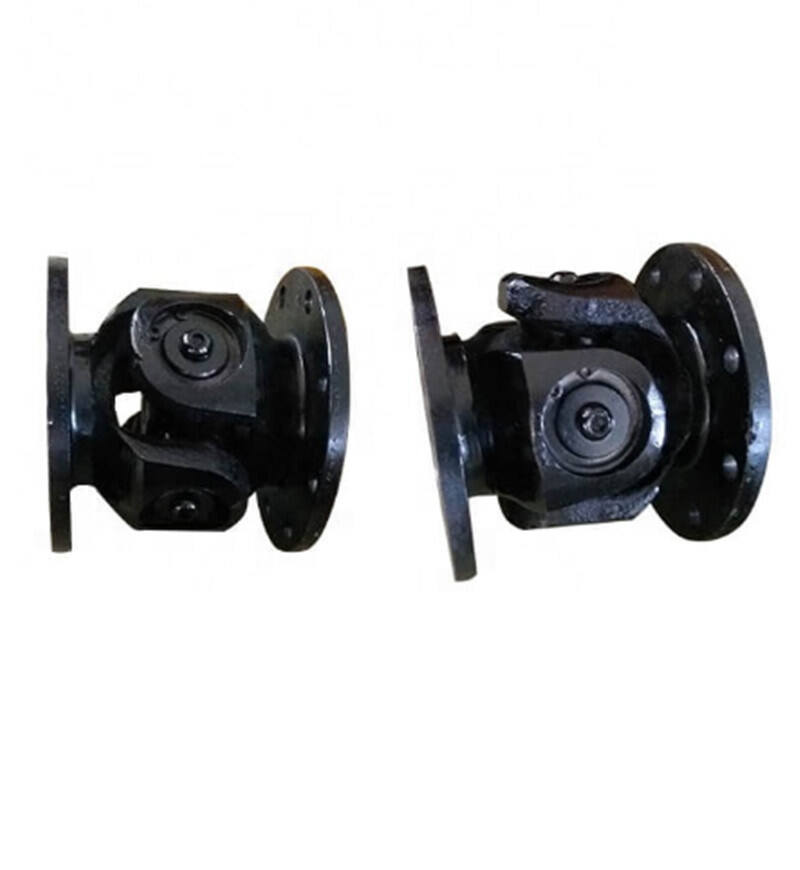Building Stronger Mechanical Connections With Cross Couplings
In every industry where machines drive productivity, the importance of durable and precise shaft connections cannot be overstated. This is where Cross Couplings play a pivotal role. These components bridge two rotating shafts, allowing torque transfer while compensating for misalignment. Beyond their basic function, they improve reliability, reduce wear, and extend machine lifespan. By supporting both flexibility and stability, Cross Couplings have become indispensable in environments where uninterrupted performance is critical. The ability of Cross Couplings to deliver smooth motion, minimize vibration, and protect sensitive equipment demonstrates their value across diverse applications.
The Structural Foundation of Cross Couplings
Material Selection for Durability
The strength of Cross Couplings starts with the materials chosen for their construction. High-grade alloys provide exceptional tensile strength, while stainless steel offers corrosion resistance in humid or chemically aggressive environments. Advanced polymers can also be used in specific applications, offering lightweight performance with impressive flexibility. The careful balance of these materials ensures that Cross Couplings can withstand the wear and fatigue of continuous industrial use.
Flexibility to Handle Misalignment
One of the defining characteristics of Cross Couplings is their ability to accommodate both angular and parallel misalignments. No machine system maintains perfect alignment at all times, especially under load or vibration. By compensating for these deviations, Cross Couplings prevent additional strain on bearings and shafts. This flexibility translates to smoother motion and reduced downtime, which is essential for industries running continuous operations.
Even Distribution of Mechanical Loads
Another significant advantage of Cross Couplings lies in their capacity to distribute loads evenly across connected shafts. Instead of concentrating stress on a single point, they spread the forces in a balanced manner. This prevents early failures, reduces equipment fatigue, and allows machinery to function at optimal efficiency. By improving load balance, Cross Couplings make systems more resilient against sudden torque changes.
Performance Benefits of Cross Couplings
Reduction of Vibration and Mechanical Noise
In rotating machinery, vibration is one of the leading causes of inefficiency and damage. Cross Couplings act as a buffer, reducing vibration and lowering noise levels during operation. This smoother performance not only enhances product quality in sensitive industries but also improves operator comfort and machine safety.
Resistance to Shock and Sudden Load Changes
Industrial processes often generate unexpected loads and shocks. Cross Couplings are designed to absorb these disturbances, protecting delicate parts from excessive stress. By cushioning sudden torque fluctuations, they maintain steady operation even under harsh conditions. This resistance ensures long-term reliability in heavy-duty applications.
Contribution to Energy Efficiency
When machinery runs smoothly, it consumes less energy. Cross Couplings minimize energy losses by maintaining alignment and reducing unnecessary friction. Over time, this translates to lower operational costs and improved sustainability. By contributing to efficiency, they align well with modern goals of energy-conscious production.

Applications of Cross Couplings in Industry
Essential Role in Manufacturing Systems
Manufacturing equipment operates under continuous pressure, often for long shifts with minimal downtime. Cross Couplings help maintain the consistency of production by protecting rotating shafts from misalignment-related wear. Their presence ensures that machines run without interruptions, directly supporting productivity goals.
Power Transmission and Motion Control
In systems where torque transfer is critical, Cross Couplings guarantee consistent motion. They allow smooth transmission of power from one shaft to another, even under imperfect alignment. This makes them crucial in applications where accuracy and dependability are non-negotiable.
Automation and Robotics Integration
Automation systems demand precise, repeatable performance. Cross Couplings support robotics by accommodating small adjustments in alignment without sacrificing motion accuracy. Their ability to provide reliability in high-precision setups makes them invaluable for industries adopting automation technologies.
Longevity and Operational Reliability
Wear and Fatigue Resistance
Cross Couplings are specifically engineered to resist fatigue under repeated stress. Their design reduces concentrated wear, which in turn extends the lifespan of both the couplings and the machinery they support. By preventing damage from continuous strain, they become a cornerstone of equipment durability.
Lower Maintenance Demands
Reducing equipment strain has a direct impact on maintenance schedules. Cross Couplings minimize the need for frequent repairs and replacements, allowing industries to focus on production instead of downtime. This cost-saving effect contributes to long-term efficiency and operational reliability.
Investment in Long-Term Value
While Cross Couplings may initially seem like a small component, their contribution to longevity and reduced maintenance makes them a high-value investment. They extend the lifespan of equipment, reduce costs, and ensure smooth operations, proving their worth many times over.
Cross Couplings and System Adaptability
Compatibility With Different Shaft Designs
Cross Couplings can be adapted to different shaft shapes, diameters, and configurations. This versatility ensures that they integrate seamlessly into both new systems and retrofits. Their adaptability makes them a universal solution across various industries.
Custom Solutions for Specialized Needs
Some industries require highly specialized performance, whether in extreme temperatures, corrosive environments, or heavy-duty applications. Cross Couplings can be customized in terms of materials, dimensions, and performance characteristics, ensuring that they meet exact requirements.
Scalability Across System Sizes
Whether used in massive industrial machines or in smaller high-precision tools, Cross Couplings scale effectively. Their performance is not restricted by system size, making them suitable for a broad range of industrial applications.
Cross Couplings in Sustainable Industrial Practices
Improving Energy Conservation
By reducing friction and maintaining optimal motion, Cross Couplings contribute to energy conservation. In industries where sustainability targets are becoming increasingly important, this advantage supports environmental goals while also lowering costs.
Extending Equipment Lifespan for Less Waste
Sustainability is not just about energy savings but also about reducing waste. Cross Couplings extend the service life of machinery, minimizing the frequency of part replacement and lowering overall industrial waste generation.
Supporting Environmentally Responsible Growth
By promoting durability and efficiency, Cross Couplings help industries align with eco-friendly strategies. They reduce the environmental footprint of production systems and support companies committed to long-term sustainable growth.
FAQ
What industries use Cross Couplings most frequently
Cross Couplings are widely adopted in manufacturing, robotics, automation, and power transmission where efficiency and reliability are vital.
How do Cross Couplings increase machine efficiency
They reduce vibration, compensate for misalignment, and ensure smooth torque transfer, which minimizes energy loss and enhances precision.
Are Cross Couplings adaptable to different environments
Yes, with the right material and design, they can be customized to withstand heat, moisture, corrosive chemicals, or heavy loads.
What are the long-term financial benefits of using Cross Couplings
They extend machinery lifespan, reduce downtime, and lower maintenance costs, resulting in significant savings over time.
Table of Contents
- Building Stronger Mechanical Connections With Cross Couplings
- The Structural Foundation of Cross Couplings
- Performance Benefits of Cross Couplings
- Applications of Cross Couplings in Industry
- Longevity and Operational Reliability
- Cross Couplings and System Adaptability
- Cross Couplings in Sustainable Industrial Practices
- FAQ

